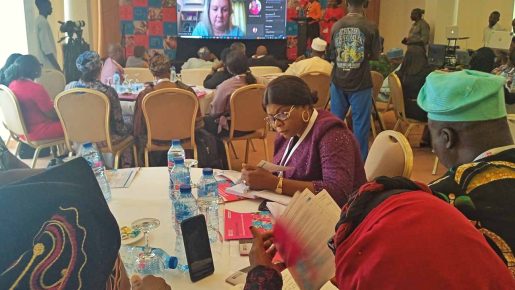The British Council Nigeria has taken a proactive stance in raising awareness about Special Education Needs and Disabilities (SEND), orchestrating a three-day Annual Inclusive Education conference in Abuja. The overarching goal is to foster a more inclusive educational landscape by engaging various stakeholders in charting a path for the integration of children with disabilities and gender inclusivity.
At the forefront of this initiative is Lucy Pearson, the British Council Country Director and Africa Lead, who underscored the imperative nature of shared knowledge and collaborative efforts for ensuring the educational wellbeing of children, irrespective of gender or any form of disability. This sentiment was expressed during the conference themed ‘Fostering Inclusion and Equity in Education in Nigeria.’
During her address, Pearson commended Nigeria for making considerable progress in the realm of inclusive education policy. However, she aptly pointed out that challenges persist in the effective implementation and mainstreaming of these policies. In the spirit of support, Pearson asserted that the British Council stands by the Nigerian government, offering best practices to ensure that all children have equal access to quality education.
The Minister of State for Education, DRM Yusuf Sununu, also contributed to the discourse by shedding light on the educational challenges faced by a significant number of children in Nigeria. He highlighted the launch of an education roadmap, designed to comprehensively address various obstacles across the educational spectrum.
Represented by his Special Assistant, Political, Atiku Abubakar, Sununu stressed the significance of fostering inclusion and equity in education. For him, this involves providing all children with access to quality education, irrespective of their background or circumstances. He emphasized the creation of a learning environment where every student feels safe, respected, and valued, as well as offering necessary support for success, regardless of their abilities.
Adding another layer to the discussion, Professor Ismail Junaid, the Executive Secretary of the Nigerian Educational Research and Development Council (NERDC), highlighted the pivotal role of the school curriculum in achieving inclusion and equity. Junaid emphasized that the reflection of these principles in the curriculum ensures sustainability and growth in the quest for inclusive education.
Junaid also drew attention to the robust nature of the Nigerian National Inclusive Education Policy, providing comprehensive guidelines on issues related to inclusion and equity. He called for the full implementation of this policy at the state level to further advance the cause of inclusive education.
Conclusion: British council

In a broader context, the three-day conference aims not only to raise awareness and discuss challenges but also to promote collaboration and networking among stakeholders in the SEND and education sector. Additionally, it seeks to develop recommendations for improving the quality of SEND in Nigeria and share effective practices for supporting students with SEND in diverse educational settings. Overall, the conference stands as a testament to the collective commitment towards creating an inclusive and equitable educational landscape in Nigeria, British council.










